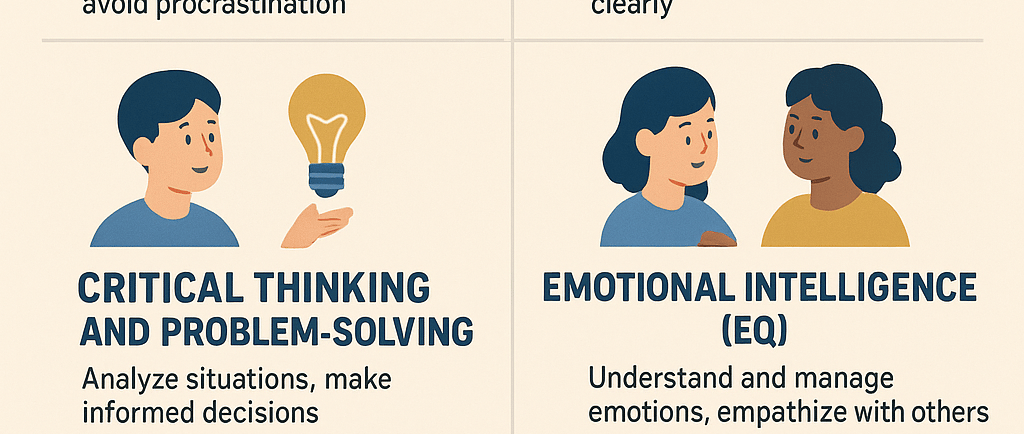Top Life Skills Every Student Should Learn


In today’s fast-changing world, students need more than just academic knowledge to succeed. Life skills are essential abilities that help young people handle real-world challenges, make wise decisions, and grow into responsible adults. These skills build confidence and adaptability, ensuring success both inside and outside the classroom. Here are some of the top life skills every student should learn
1.Time Management
Time is one of the most valuable resources for students. Learning how to prioritize tasks, create schedules, and avoid procrastination is crucial. Good time management allows students to balance academics, extracurricular activities, and rest. Using planners, to-do lists, or digital calendars helps organize tasks and meet deadlines efficiently.
2.Communication Skills
Effective communication goes beyond just speaking. It includes listening actively, understanding others’ perspectives, and expressing ideas clearly. Students who master communication skills perform better in group projects, presentations, and even personal relationships. Public speaking and writing skills are equally important for academic and professional success.
3.Critical Thinking and Problem-Solving
Life is full of unexpected problems. Students need to analyze situations logically, think creatively, and make informed decisions. Critical thinking encourages questioning assumptions and evaluating evidence before drawing conclusions. Problem-solving skills help students overcome academic and personal hurdles with confidence.
4.Emotional Intelligence (EQ)
Emotional intelligence refers to understanding and managing one’s emotions while empathizing with others. It helps students handle stress, build positive relationships, and work well in teams. Practicing self-awareness and empathy improves mental well-being and prevents conflicts.
5.Financial Literacy
Many students struggle with managing money when they step into adulthood. Learning budgeting, saving, and understanding basic financial concepts like interest, loans, and investments prepares them for financial independence. Even simple habits like tracking expenses can make a big difference.
6.Adaptability and Resilience
The world is constantly evolving, and students must learn to adapt to new challenges. Resilience helps them bounce back from failures and see setbacks as opportunities to grow. Developing a growth mindset—believing that skills can be improved with effort—builds perseverance.
7.Collaboration and Teamwork
Most professional environments require working with others. Students who can cooperate, respect different opinions, and contribute effectively to a group are more likely to succeed. Teamwork also enhances leadership qualities and teaches responsibility
8.Self-Care and Stress Management
Balancing academics and personal life can be stressful. Students must learn self-care strategies such as regular exercise, healthy eating, and proper sleep. Stress management techniques like meditation or journaling improve focus and emotional health.
Conclusion
Life skills are as important as academic learning. When students develop these abilities early, they become better equipped to handle future challenges with confidence and wisdom. Schools and parents should encourage students to practice these skills daily, ensuring they grow into capable and responsible adults.
